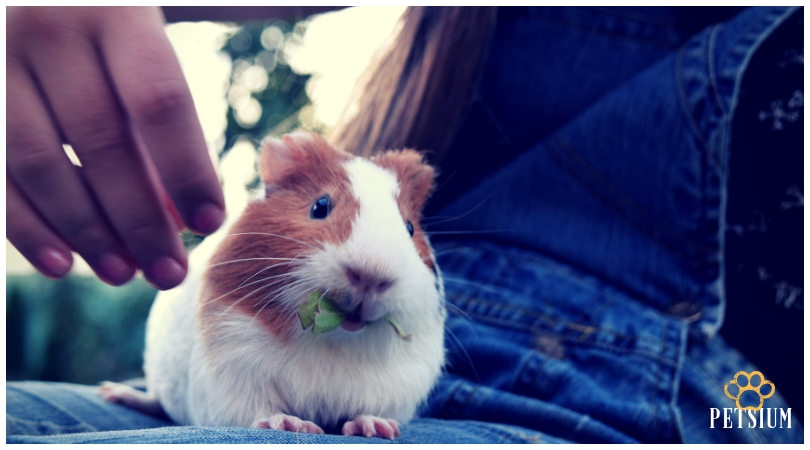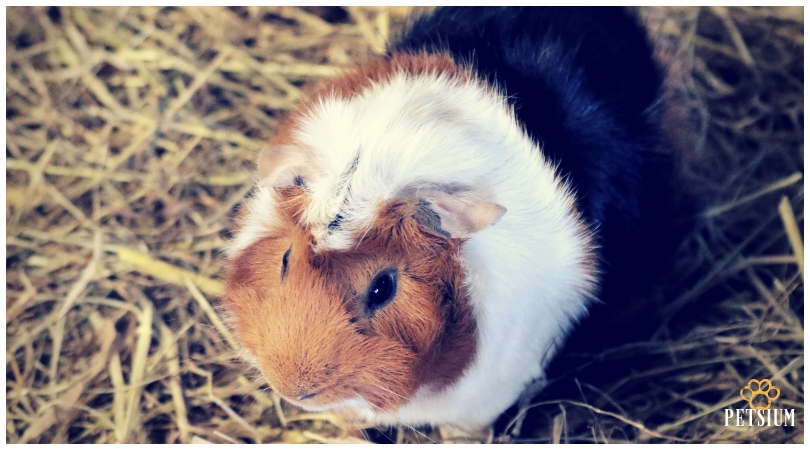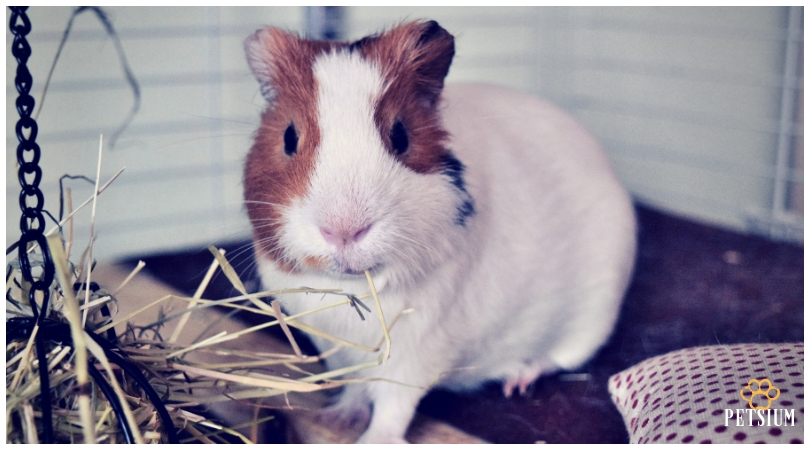Many parents think that a guinea pig is the ideal first pet for their children. In some ways, they are right, but there are some important things to know about adopting a guinea pig aka piggy.
It has happened to many parents. Their children begging them for a pet can be a common occurrence. However, a dog or a cat can be simply out of the question. For those parents, who are looking for the perfect pet for their kids, they may want to consider guinea pigs as pets. There are many advantages to purchasing guinea pigs for kids, and following are some of these reasons.
Guinea Pigs for Kids
First of all, Cavies do not require a lot of space in one’s home. There are many guinea pig cages of different sizes available on the market today; however, the perfect size cage for these pets is about 7 square feet. Although many people choose to purchase a cage for their pet, some people choose to build one. There are many fantastic books that can show people how to make their own cages for their pets.
These small creatures enjoy spending most of their time in their own small living space; however, they do enjoy spending time outside of their cages, as well; and they especially love spending time outdoors. Many pet shops also sell exercise pens that owners can set up outdoors, to allow their small pets to enjoy being outside from time to time.
Another reason that guinea pig for kids is a great pet is that they do not cost a lot to take care of. They require the most basic of equipment including a proper cage, bedding, food and a few toys. Most people use cedar shavings as bedding, and it can be quite affordable when purchased in bulk. People can find toys and the proper food for guinea pig in any pet department or pet store. The veterinary bills for guinea pigs are also much cheaper than for many other pets.

Owning a pet can also instill some responsibility in children. Children of about 10 years old and over are ideal ages to begin teaching them some sort of responsibility, such as taking care of their own pet. However, many parents either do not want dogs or cats in their homes, or they cannot have them in their homes. Thus, these lovable, little creatures make fantastic alternatives.
Cavies are extremely easy for kids to handle and take care of, with minimal adult supervision. These wonderful, small creatures are relatively quiet and extremely gentle. When parents give one of these gentle little creatures to their children, they do not have to worry about the pet harming their child. Parents always should, however, teach their children how to handle their furry friends properly so that they do not harm them.
Guinea pigs are also extremely fun for children to watch, while they scurry about playing with their toys and doing funny things. They, just like any other animals, each have their own unique personalities and it can be quite fun watching them develop. As the little creatures get more familiar with their young owners, many of them will try to play with them and will enjoy being held and petted.
Guinea Pigs for Kids Benefits
You may consider baby guinea pigs for your children as their first experience of having a pet. They are cute and cuddly and kids can grow attached to them.
Pets are a good thing for children to have at a young age. They can learn a lot about responsibility if you give them the pets to look after themselves. You should allow them to do all the chores associated with caring for the animal. Cleaning the cage is an important job. The child can be responsible for removing the old straw and putting in clean supplies.
The child may even want to be involved before the guinea pig has been purchased. They can be involved in selecting the cage and preparing it for its new occupant. There are many nifty cages on the market these days. They come in many colors and styles. Some are several stories high so that the guinea pigs can run up and down with ladders and wheels.
The child should also take care of all the guinea pig feeding. They should also get to know about the guinea pig medications. Many are on vitamins and also antibiotics. The child can learn how to administer these safely.
Having the pet should be a learning opportunity about the specific species and breed. You can give the child a project to learn as much about the origins and history of the animals. Ask them to find out why it is called a guinea pig. They should know which other animals it is related to and how it used to live in the wild. They should also know how the animals are reared in captivity and what they are used for in various parts of the world.
There is so much fun to be had from playing with the new pet. They can be a bit shy but they do soon get used to a degree of human contact and can be very friendly. A child should enjoy playing with guinea pigs in the garden. However, they should be careful the guinea pig does not get lost in the over growth or run away.
One of the most important lessons children learn from having guinea pigs is about the life cycle. They can observe first hand how the animal matures from babyhood to adolescence and even adulthood. If you have more than one guinea pigs they could be given the opportunity to reproduce so that the child can learn about the creation of next generations. Eventually the guinea pig will age and die and this is the final lesson the child needs to learn.

Guinea Pig Needs Care and Attention
Its cage, water and feeding dish need daily cleaning and weekly scouring to keep piggy nourished and healthy. While it doesn’t need a lot of equipment, a guinea pig does need ample room to roam safely, such as a big enough cage, and benefits from time outside its cage if in a protected environment.
Guinea pigs also require veterinary care to ensure their well-being. Bi-annual visits are recommended.
Guinea pigs need to be handled gently, which can be a tall order for most children. Because guinea pigs are susceptible to stress, which they show with different kinds of body language, they need to be picked up and held with care. Make sure that piggy is well-supported under its hindquarters while picking it up; then, hold it close to your chest so that it feels safe and secure.
Housing Your Pet Guinea Pig
Guinea pigs can be wonderful pets. Like all animals, they need to have a home, or nest, that suits their nature. For guinea pigs, that means a cage that is at least 18 inches wide and 25 inches deep, and more than a foot in height. Good ventilation is essential, so wire cages with a tray in the bottom work well. The larger the cage, the more room your pet has to move about; and the more active your pet is, the healthier and happier it will be.
Once you have selected the Guinea Pig cage, you will need to choose bedding material. Aspen wood shavings, or Carefresh shavings, work well; do not use pine or cedar shavings, since the oils of those woods can cause respiratory problems in guinea pigs.
Your pet guinea pig will also need food and water bowls in its cage. Unlike some caged pets, guinea pets do not benefit from having a wheel, or multiple „stories,“ or levels. Guinea pigs do need floor space to run around, rather than wheels or ladders.
Guinea pigs do need to chew, since their teeth are growing. Providing appropriate chew toys for them to work on in their cages is important to their well-being.

The Health of Your Pet Guinea Pig
A guinea pig can live as long as 12 years, with most averaging about six to eight years. Knowing the potential health issues of your pet and how to prevent them will go a long way towards prolonging its health and well-being.
Guinea pigs should visit a veterinarian twice a year for examinations. Guinea Pig grooming is not that hard. Your vet can teach you how to trim its nails, something that needs to be done every couple of weeks. Since guinea pigs’ teeth are constantly growing, they too may need regular trimming.
Guinea pigs are most susceptible to colds that can develop in response to dampness and expose to temperature fluctuations. Colds can quickly turn into pneumonia in guinea pigs, so seek treatment for your pet the moment you notice signs of its ailing. As with all pets, if your guinea pig stops eating, take it to the vet immediately.
On a daily basis, examine your pet for lumps and bumps, which can indicate injuries or insect bites. Check under its chin, where guinea pigs are prone to lymph node abscesses. And, of course, if you see diarrhea, constipation, weight loss or gain, limping, discharge from eyes, ears or nose, seek help immediately.
In conclusion, for those individuals, who may be looking for the ideal pet for their child, they may want to consider a guinea pig as pets. There are many benefits to choosing them as pets for kids.